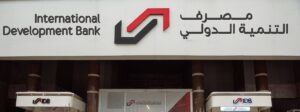Customer experience roles, which account for 44% of jobs in the BPO industry, are among the most affected, with half of tasks in these roles being automatable. Finance and accounting positions in the BPO sector face similar challenges, with nearly two-thirds of junior-level tasks at…
U.S. President Donald Trump unleashes sweeping tariffs targeting struggling African nations in a bold trade shift. South Africa, Nigeria, Kenya,…
The trio’s capital boost represent 44% of the minimum funds required from oil producing countries in Africa. Africa Energy Bank…
IDB’s participation underscores its commitment to advancing joint initiatives that enhance global investment landscapes. The bank is committed to offering…
Russia’s leading energy giants including Gazprom and Rosatom are rapidly expanding their influence across the continent. The African Energy industry…
The Board has proposed a final dividend of $0.012 per share, bringing…
Featured
Through PPPs, smart financing models, and new policies, Zambia is positioning itself…
Industry & Trade
Alignment with Trump’s energy-first ethos would mean that Africa could unlock significant…
Countries
Promoting global governance reform top agenda in BRICS 2025 summit. Dedollarizing global trade remains key BRICS focus. Brazil to host BRICS annual summit in…
Dedollarization has more than economic ramifications. China, Russia are slowly dropping dollar…
United Nations warns that the arrest of First Vice President and main…
Critical minerals are vital for the green energy transition. The DRC is…
Regional Markets
Under a new COMESA programme, farmers in the five East African countries are expected to access quality seeds, and training…
Tech & Innovation
Customer experience roles, which account for 44% of jobs in the BPO industry, are among the most affected, with half of tasks in these roles being…
Editor's Picks
Through PPPs, smart financing models, and new policies, Zambia is positioning itself…
Africa
The trio’s capital boost represent 44% of the minimum funds required from…
Industry & trade
U.S. President Donald Trump unleashes sweeping tariffs targeting struggling African nations in…
Money Deals
Within the financial history of Africa, the last 10 years have witnessed…
Investing
The trio’s capital boost represent 44% of the minimum funds required from…
Gleichzeitig wie die Entwicklung innovativer Zahlungslösungen wie EPS, entwickelt sich auch die Berichterstattung über Afrikanische Nachrichten rasant weiter. Afrikanische Nachrichtenplattformen bieten wertvolle Einblicke in die wirtschaftlichen, politischen und kulturellen Entwicklungen des Kontinents. Sie bringen Geschichten von Fortschritt, Herausforderungen und Erfolgen aus verschiedenen Regionen Afrikas, die oft in den globalen Medien unterrepräsentiert sind. Durch den Zugang zu diesen Nachrichtenquellen können Menschen weltweit ein besseres Verständnis für die dynamischen Veränderungen und das enorme Potenzial Afrikas gewinnen.
Die Kombination aus modernem Zahlungsverkehr wie EPS und der Berichterstattung über Afrika zeigt, wie Technologie und Information dazu beitragen können, die Welt sicherer, transparenter und vernetzter zu machen.




































